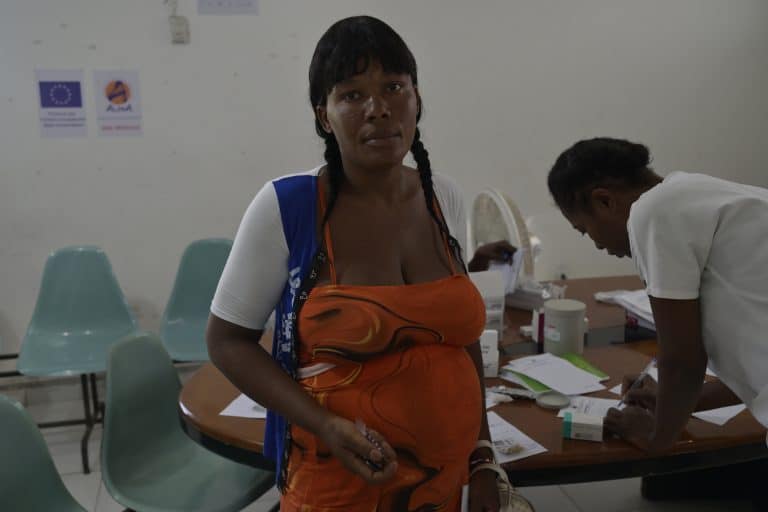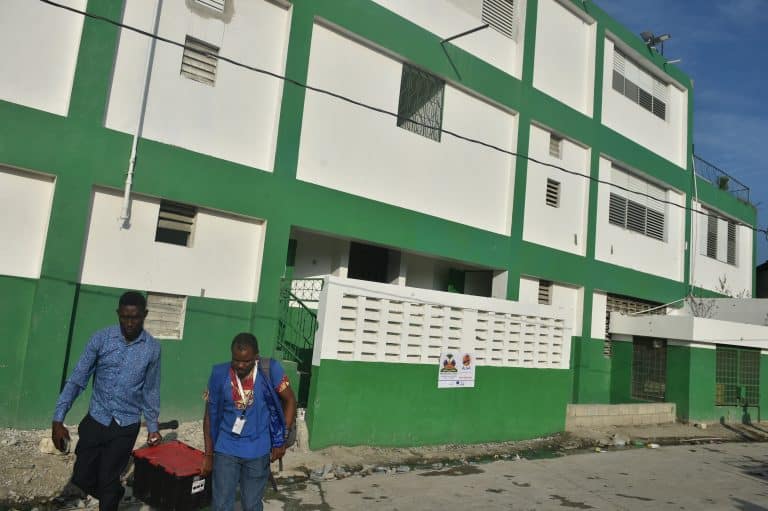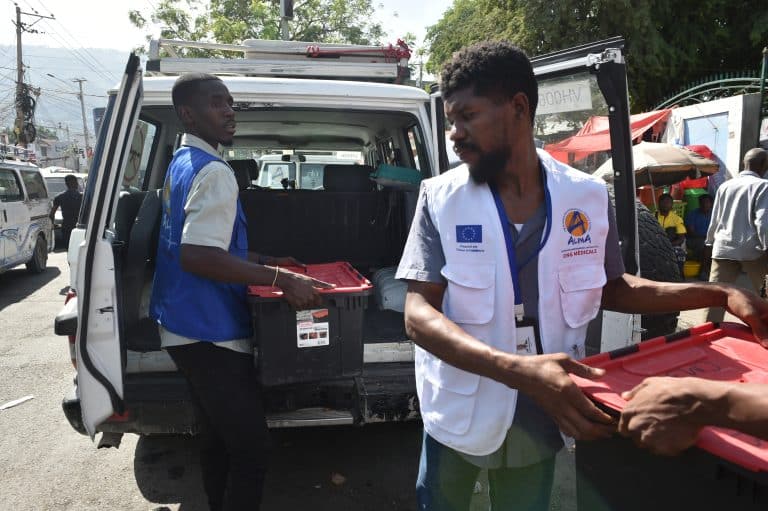Anse-à-Pitres, a small town in southeastern Haiti on the Dominican border, has become a refuge. Every day, dozens of families arrive, forced to leave their lives behind with little more than a few makeshift bags. Many had little time to gather their belongings before being taken to the border. Among them are pregnant women, breastfeeding mothers, and young children, arriving exhausted, weakened, and sick. And what awaits them on the Haitian side of the border is a collapsing health system.
Some health centers have nothing left
Seeking care is like playing Russian roulette. Deported from the Dominican Republic just days before giving birth, Marie-Ange* had to endure the hellish journey to the border. Upon arrival in Anse-à-Pitres, she was rushed to the city’s hospital. Her condition was critical: the baby was showing signs of distress, and its life, as well as its mother’s, were in danger. Thanks to the quick intervention on behalf of ALIMA and a state gynecologist present in the hospital at the time, the young woman was stabilized and received a C-section.
“Today, both mother and child are doing well”
Dr. Ganda, ALIMA’s Medical Coordinator in Haiti
Marie-Ange was lucky. Two weeks later, Guerline*, also at the end of her pregnancy, was admitted to hospital. The birth was showing signs of complications: her baby was too big for a natural delivery. However, the gynecologist from the Ministry of Health had left by then. “In the Anse-à-Pitres hospital, there are only two midwives to receive all the women. There was a state gynecologist for a few weeks, but he left,” explains Dr. Ganda.
ALIMA’s team managed Guerline’s transfer to a private clinic, where she underwent a C-section. Her family was able to cover the cost of this very expensive intervention, but it is beyond reach for most deportees, already facing extreme poverty, as well as for many residents in this region.
ALIMA, a vital support
Since arriving in the region, ALIMA has been strengthening the obstetric care capacity in the area through the recruitment of an obstetrician-gynecologist and a nurse anesthetist, and by equipping a functional blood bank so that this type of intervention can eventually be provided directly at the hospital.
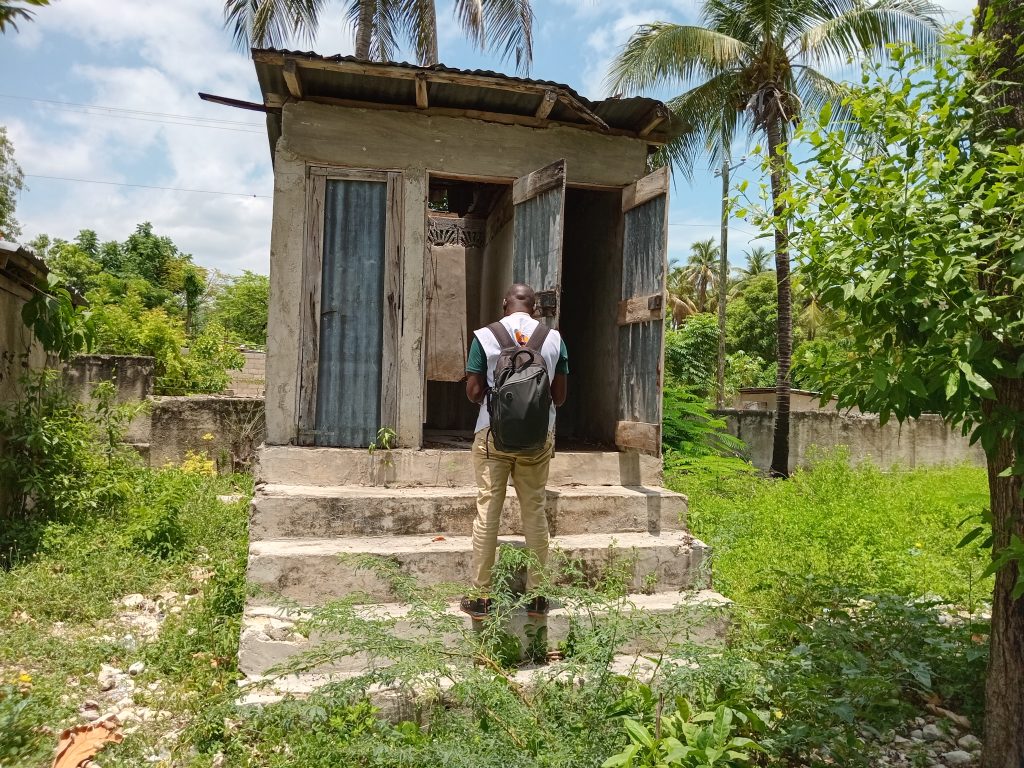
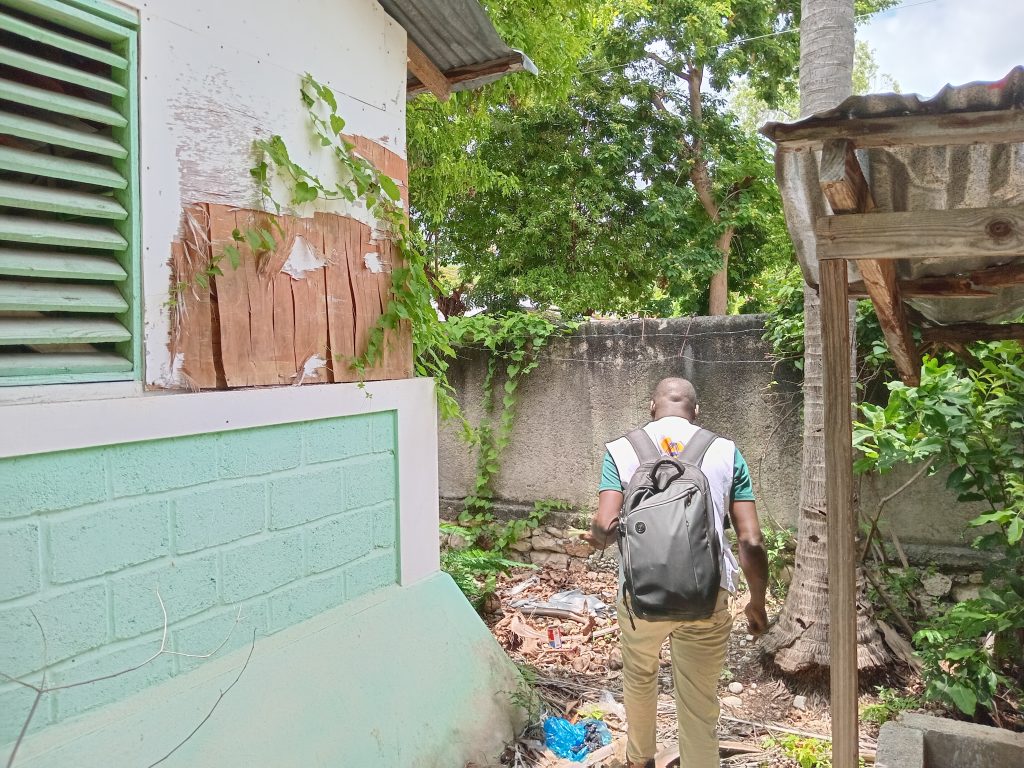
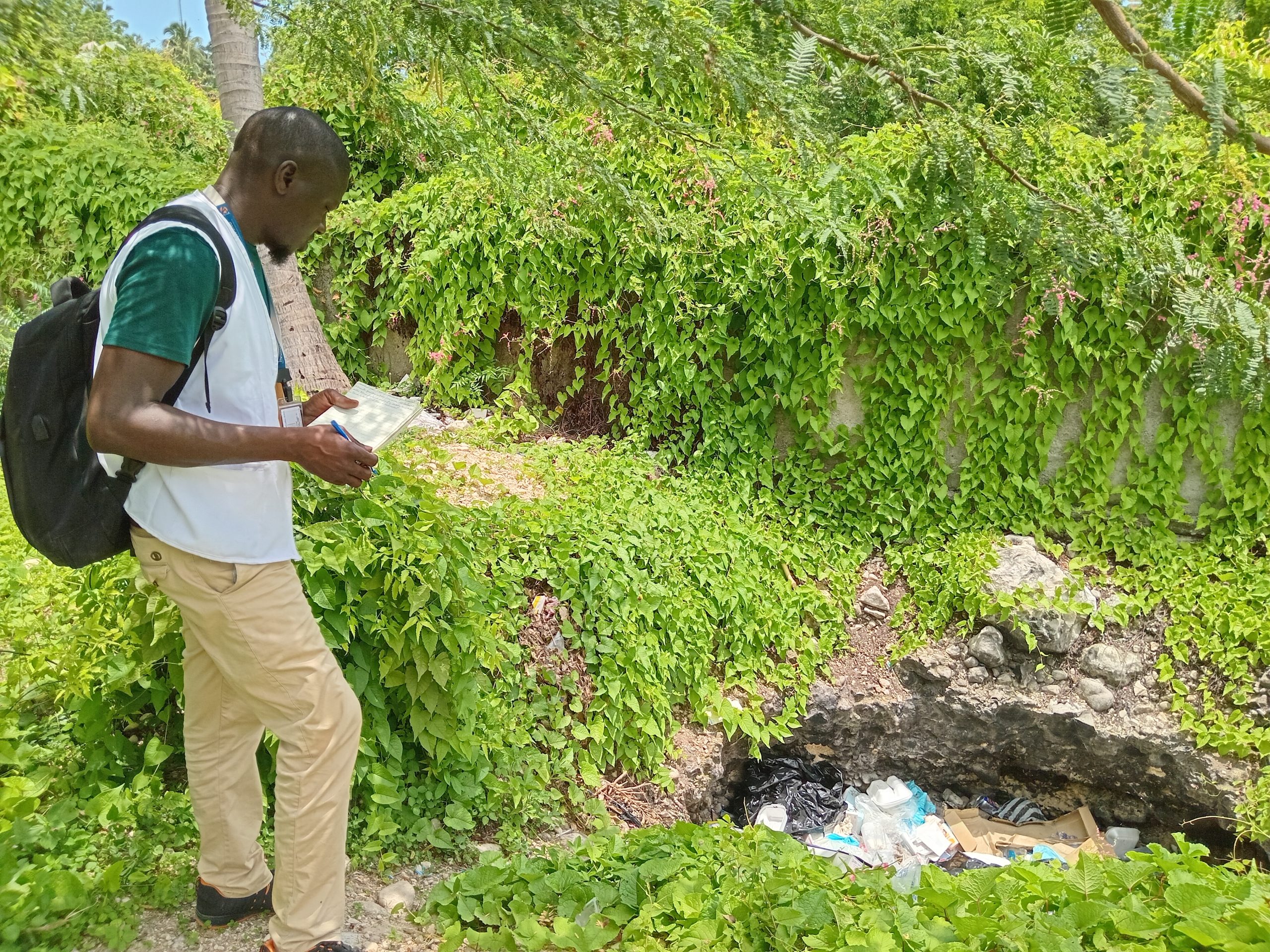
In the region, the needs are huge. There is a drastic lack of qualified state health workers. Medical facilities in the area are no longer functioning, pharmacies are empty, and delivery rooms are under-equipped.
“Some don’t have medicine, the equipment is very limited, and there are no more health workers. In some centers, the only solution is to use rainwater, due to the lack of a water supply system”
Dr Ganda
For several years now, the tense security crisis in Port-au-Prince has spread across the country, particularly in the southeast, which already hosts over 100,000 internally displaced people and is highly affected by malnutrition.
Faced with this reality, ALIMA has expanded its operations. Already present in Port-au-Prince since April 2024, the organization extended its work to the Southeast in April 2025. In Anse-à-Pitres, ALIMA teams offer free care to pregnant and breastfeeding women, children under five, particularly those suffering from malnutrition, as well as psychological and psychosocial support to people deeply affected by displacement.
The teams are prepared for upcoming emergencies, as the risks of epidemics, especially cholera, are a real threat during the cyclone season.
A worsening emergency
Behind the figures (over 100,000 internally displaced people in the region and thousands of deportees crossing the border each month) are stories like Marie-Ange’s that are a reminder of the urgency. Lives are at risk in an already fragile area.
For ALIMA, the message is clear: all the elements are present for a major health crisis to unfold in the region. More support is needed to preserve what remains and to rebuild what is no more. ALIMA’s work, alongside the Ministry of Public Health and Population, is vital to prevent a major health crisis.
*Names have been changed.
This project is made possible thanks to humanitarian funding from the European Union.
Cover photo: © ALIMA


